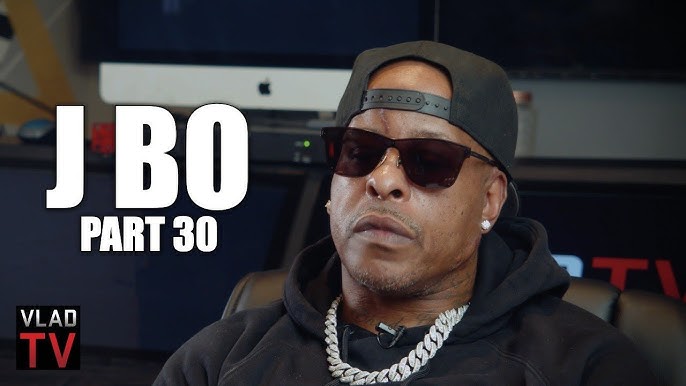BMF Members Who Snitched: Uncovering the Betrayal Within the Crew

Introduction to BMF
The Black Mafia Family (BMF) emerged as a significant force in the drug trade within the United States during the late 1990s, marking its presence not just in the illegal drug market but also in popular culture. Founded by the Flenory brothers, Demetrius “Big Meech” Flenory and Terry “Southwest T” Flenory, BMF began as a modest drug trafficking operation in Detroit, Michigan. Over time, it evolved into a large-scale organization with a sprawling network reaching various cities across the nation.
The structure of BMF was intricate, operating with a hierarchical system that allowed the organization to maintain a level of secrecy and operational efficiency. At the top were the founders, Big Meech and Southwest T, who oversaw the entire operation, including distribution and financial management. Below them were crucial lieutenants, regional leaders, and street-level dealers, all of whom played integral roles in facilitating the flow of narcotics and maintaining loyalty among members.
BMF’s influence stretched beyond drugs, as it became synonymous with hip hop culture. The crew’s members collaborated with numerous artists and had close ties with high-profile figures in the music industry, which helped to elevate the drug empire’s reputation and significance. The lifestyle associated with BMF, highlighted by wealth, power, and notoriety, resonated with many aspiring hip hop artists, further blending the lines between crime and art. However, this lifestyle also brought about unforeseen consequences, including betrayal from within the ranks. Instances of informants and BMF members who snitched revealed vulnerabilities in the organization’s foundation, spiraling into legal troubles and ultimately leading to its downfall. These betrayals not only impacted the organization but also shattered the communities that had once supported them, setting a complex stage for discussions on loyalty, betrayal, and the lasting repercussions of the BMF saga.
Understanding Snitching in Organized Crime
In the realm of organized crime, the term “snitching” refers to the act of betraying one’s associates by providing information to law enforcement authorities. This betrayal is often viewed as an egregious violation of the trust that is foundational to criminal organizations, which typically operate under a strict code of silence known as “omertà.” Within such groups, members are expected to remain loyal and mute regarding the organization’s illicit activities. When individuals, often referred to as informants or whistleblowers, decide to break this code, the ramifications can be severe, both for themselves and the broader organization.
The consequences of snitching can manifest in multiple dimensions. For the individual who decides to become a rat, the immediate fallout can include ostracism, threats, or even fatal retribution from former associates. These individuals often find themselves in precarious situations where their safety is compromised, as organized crime groups place a premium on loyalty and will not tolerate betrayal lightly. In some cases, snitches may seek witness protection programs, which offer anonymity and safety in exchange for their testimony, but even this can come with its own set of challenges.
From the perspective of the organization, the act of snitching can lead to significant disruption. The betrayal can catalyze internal distrust, causing fractures within the ranks and leading to paranoia among remaining members. Moreover, law enforcement agencies may leverage information provided by snitches to dismantle operations, arrest individuals, and ultimately weaken the organization. In the context of the Black Mafia Family (BMF), understanding the dynamics of snitching provides a crucial framework for analyzing specific cases of betrayal within its hierarchy. As the history of organized crime unfolds, the actions of those who choose to divulge secrets become pivotal focal points, revealing the vulnerabilities that exist even among the most tightly-knit criminal enterprises.
High-Profile Cases of BMF Members Who Snitched
The Black Mafia Family (BMF) has become synonymous with both high-stakes drug trafficking and the complex interpersonal relationships within its ranks. A significant aspect of its history involves members who betrayed the organization by cooperating with law enforcement, often becoming informants in high-profile cases. One of the most notable figures is Demetrius “Big Meech” Flenory’s own brother, Terry “Southwest T” Flenory, who was involved in the organization’s operations but later had his own legal challenges that brought him into contact with authorities. While Terry did not snitch, his case exemplifies the potential for internal conflict and betrayal within BMF.
Another key example is the case of alleged informant and former member, Charles “Chedda Boy” Flenory. As a key player within the organization, his cooperation with the federal government compromised many operations of the BMF, leading to several arrests and convictions of other members. Reports indicate that Chedda Boy’s motivations stemmed from a desire to lessen his own legal penalties, illustrating how the fear of incarceration can drive individuals to snitch. His actions had cascading implications, weakening the credibility and operational capacity of BMF significantly.
Moreover, many of the members who snitched did so under pressure during lengthy investigations, where lengthy sentences loomed over their heads. The stories of BMF members who snitched often reveal personal struggles, including battles with addiction and the search for protection from prosecution in exchange for information. The betrayals of these individuals serve as cautionary tales, informing both current and former members about the risks of involvement in organized crime. These revelations underscore the fragility of loyalty within such organizations and the high stakes attached to the decisions made by BMF members who snitched.
The Impact of Snitching on BMF Operations
Within the hierarchy of the Black Mafia Family (BMF), the term “snitching” became synonymous with betrayal. Various members who snitched significantly altered the dynamics of the organization, leading to detrimental effects on its operations. The insights gained from these betrayals are crucial for understanding the eventual downfall of BMF and the factors that contributed to its dismantling.
First, the actions of those who turned against the organization had immediate repercussions. Information leaks facilitated investigations by law enforcement, resulting in a series of arrests and prosecutions targeting high-ranking figures within BMF. These critical breaches of trust created an environment of paranoia and suspicion, leading many remaining members to question their associates’ loyalty. The inevitable fractures within the organization came from members fearing retribution or further betrayals, eroding the once-unified front that BMF had maintained.
Moreover, the consequences of snitching extended beyond immediate arrests. The information provided to authorities by BMF members who snitched allowed law enforcement to build comprehensive cases against the organization. This strategic dismantling not only led to the incarceration of key players but also caused the disintegration of various operational units within the crew. With the leadership positions compromised, the standard operating procedures of BMF became increasingly chaotic, compromising the organization’s ability to function effectively.
Additionally, the betrayal sowed seeds of distrust among the remaining associates. The operational integrity faltered as alliances shifted and loyalties wavered in response to the fear of being a target of similar fate as those who snitched. Consequently, the once-thriving network of BMF began to collapse under its weight, as ongoing investigations and the visible decline in confidence among members led to a loss of influence and power in the drug trade.
Cultural Perceptions of Snitching in Hip Hop
The concept of snitching holds a significant place within hip hop culture, especially when it comes to high-profile organizations like the Black Mafia Family (BMF). In this realm, being labeled a snitch is often associated with dishonor and betrayal, establishing a code of silence that members are expected to uphold. This cultural ethos is deeply rooted in the broader societal perceptions of loyalty and trust, particularly in marginalized communities where the consequences of cooperation with law enforcement can be dire.
In hip hop narratives, the call to remain loyal often trumps individual survival instincts. Many tracks recount tales of loyalty, often portraying snitches as the ultimate traitors. This symbolism can be traced back to the historical context of African American communities, where sharing information with authorities has been viewed as a disloyal act that undermines collective safety and solidarity. As a result, BMF members who snitched faced not only legal ramifications but also social ostracism from their peers and the community.
Moreover, the portrayal of betrayal in hip hop lyrics serves to reinforce the stigma attached to snitching. Artists commonly illustrate the harsh realities that come with being a snitch, emphasizing the psychological toll and the resultant alienation from one’s community. The pressures not to disclose criminal activities, fueled by cultural narratives, complicate the decisions faced by individuals within organizations like BMF. The repercussions of labeling become significantly pronounced, as former members who cooperate with law enforcement are seen as having compromised their integrity. In essence, the cultural dialogue surrounding snitching maintains a critical lens on loyalty, affiliation, and the often turbulent relationship between law enforcement and hip hop communities, framing the lived experiences of those entangled in such dynamics.
Legal Consequences for Snitches
The involvement of BMF members who snitched entails significant legal ramifications. When individuals within criminal organizations choose to cooperate with law enforcement, they often face a myriad of consequences that can drastically alter their lives and the dynamics of their respective groups. Legal strategies such as plea deals and testimonies against fellow members frequently characterize the actions of those who decide to become informants.
Plea deals are a common outcome for BMF members who have decided to collaborate with authorities. By providing evidence or information against other crew members, informants can negotiate reduced sentences or even full immunity in exchange for their cooperation. This arrangement seeks to leverage the testimony of BMF members who snitched, helping law enforcement dismantle larger drug trafficking operations. However, accepting a plea deal is not without its risks, as the informant might still have to face backlash from the community, both legally and socially.
Testifying against peers often places BMF members in precarious situations. Once they take the stand, these individuals may be subject to severe repercussions, including ostracization from former associates and potential threats to their safety. While some jurisdictions offer protection programs for those who cooperate with law enforcement, these programs do not guarantee the full safety or anonymity that informants require. The decision to snitch, therefore, is fraught with uncertainty that can have life-altering effects.
Real-life cases illustrate the complex nature of these legal outcomes. For example, some members who chose to testify found themselves facing retribution not only from their former associates but also from their own communities, as loyalty remains a significant aspect of gang culture. In conclusion, while the decision to cooperate with law enforcement may appear beneficial in terms of legal standing, the ramifications for BMF members who snitched can lead to multidimensional challenges both within the legal system and beyond.
Reactions from Other BMF Members
The betrayal by members who snitched within the Black Mafia Family (BMF) has left a profound impact on the organization, inducing a range of reactions among surviving members. This group valued loyalty above all else, and when one of their own chooses to cooperate with law enforcement, it not only threatens their operations but also dismantles the trust that is fundamental to their existence. Many BMF members have expressed their feelings through informal channels, revealing a deeper sense of betrayal and disappointment.
Some former associates have openly criticized those who opted to turn against the family. They cite the principle of “snitches get stitches,” emphasizing that informing on fellow members is a violation of their code. However, these reactions were not just rooted in anger; they reflected a painful recognition of how internal secrets could lead to the demise of a once-solid bond. Various statements from these members highlight feelings of confusion and disillusionment. Members have stated that the choice to snitch is often seen as a desperate attempt to save oneself, leaving a lingering question of what strongly held values are left in the wake of such betrayals.
The sentiments of other BMF members also reveal a cautionary stance for future interactions, emphasizing the severity of outcomes when trust is broken. They compare the current division in loyalty to an impending storm, suggesting that the internal dynamics of the crew are forever altered. Surviving members frequently lament how snitching not only led to harsh legal repercussions but also injected a persistent sense of skepticism among those who remain committed to the BMF ideology.
In conclusion, the reactions to members who snitched provide pivotal insights into the internal conflicts faced by the BMF. It showcases the emotional toll that such betrayals take on a community built on the foundations of loyalty and trust.
Lessons Learned from the BMF Snitching Scandals
The BMF, or Black Mafia Family, serves as a captivating yet somber study in the dynamics of loyalty and betrayal that are inherent in organized crime. The actions of certain BMF members who snitched reflect deeply on the concepts of trust and fidelity within close-knit groups. When members choose to cooperate with authorities, the ripple effects extend far beyond personal repercussions, leading to an atmosphere of suspicion and fear among remaining affiliates. This phenomenon is not isolated to BMF but resonates throughout the world of organized crime.
One principal lesson highlighted by the BMF snitching scandals is the fragility of trust. In high-stakes environments, particularly those governed by illicit activities, individuals may sometimes prioritize self-preservation over loyalty to their companions. This results in a corrosive atmosphere, as individuals question the motives of those around them. Within such groups, the realization that a single betrayal can dismantle years of mutual commitment teaches members the importance of loyalty, even when faced with dire circumstances.
Furthermore, the implications of betrayal underscore the significant impacts of internal conflict. BMF members who snitched not only jeopardized their integrity but also compromised the safety and future prospects of their peers. This perpetual cycle of mistrust illustrates how betrayal can lead to a collapse of operational effectiveness, often leaving the loyal members vulnerable to increased scrutiny and law enforcement actions.
The lessons drawn from the BMF saga serve as salient reminders for individuals and groups in similar contexts about the critical nature of loyalty and the inherent dangers of betrayal. Recognizing the potential consequences of their actions can encourage individuals to act with integrity, fostering an environment where trust prevails over treachery.
Conclusion: The Legacy of Betrayal in BMF
The narrative of the Black Mafia Family (BMF) is not just one of ambition and success; it is also a cautionary tale filled with instances of treachery and betrayal. Throughout this blog, we have examined the various BMF members who snitched and the implications of their decisions on the organization as a whole. These individuals, motivated by self-preservation or monetary gain, contributed to the erosion of trust within the crew, leaving behind a legacy fraught with complexities.
At the crux of BMF’s story lies the stark reality that loyalty—an essential tenet in any criminal enterprise—can be easily compromised. The members who decided to cooperate with law enforcement not only weakened the foundation of BMF but also introduced an enduring narrative of mistrust within various circles, including both the crime world and the broader hip hop community. The psychological implications of such betrayals reflect not just on the individuals involved but also on the cultural fabric of a lifestyle that valorizes allegiance and brotherhood.
The discourse surrounding betrayal among BMF members extends into larger conversations about honor and loyalty in the realms of crime and hip hop. The legacies of those who snitched serve to remind current and future generations about the potential consequences of choosing personal gain over collective strength. As followers of this story unravel the complexities of betrayal, it is evident that the legacy of BMF is intricately linked to both its glorious heights and the pitfalls of disloyalty. The impact of these decisions will undoubtedly resonate as the saga of BMF continues to evolve, highlighting the fragile balance between ambition and betrayal.
You May Also Read This Usaworldtoday.




